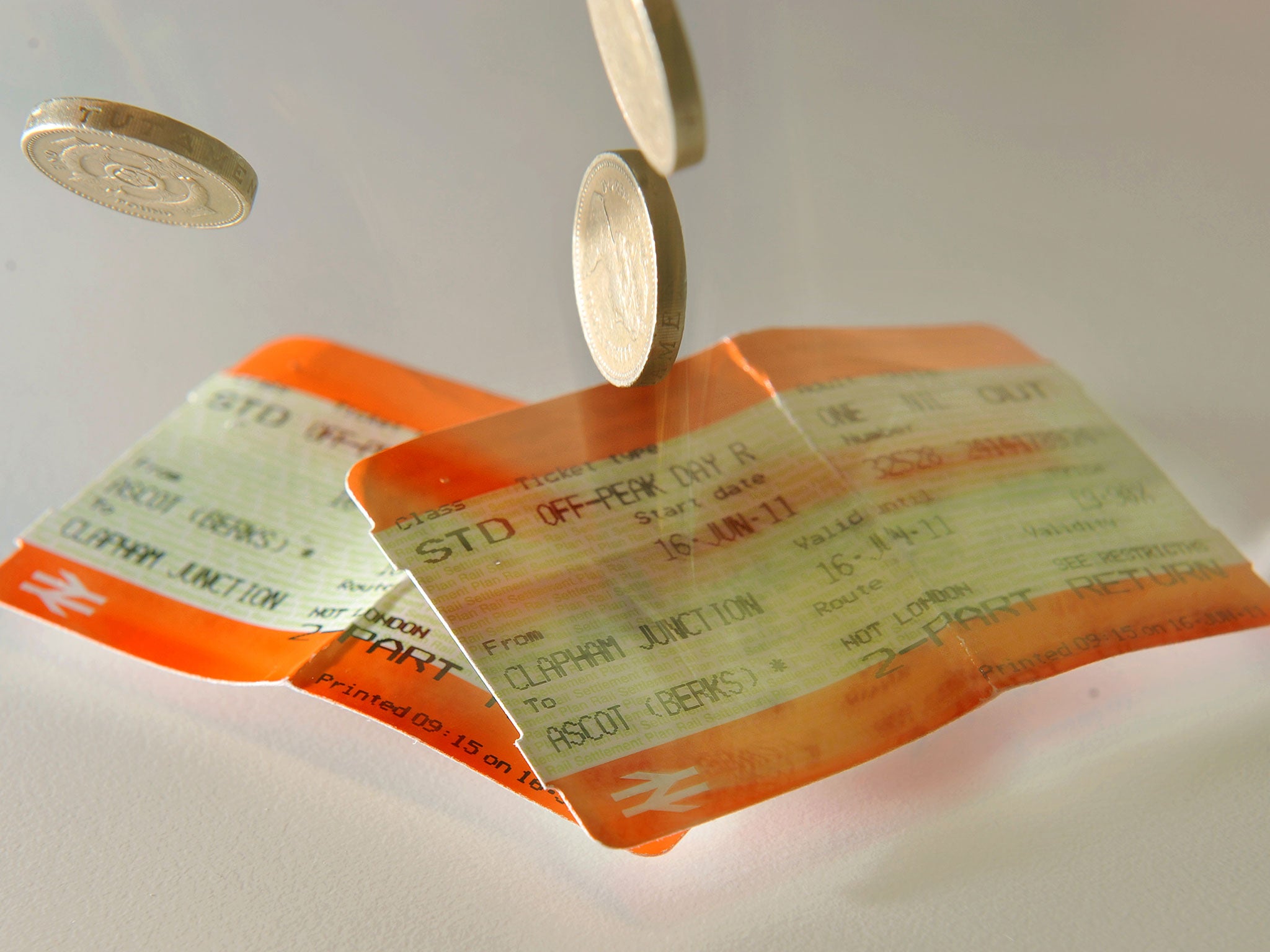Misery for commuters as rail fares will rise by 5%

Rail fares in Britain will rise by as much as five per cent next year – or even higher on some routes, the Government will formally announce today.
The rise is set to take the overall increase in fares to around 24.7 per cent since 2010, leaving commuters dismayed at the rate far outstripping the comparative rise in wages.
It could mean the cost of a season ticket from Reading to London increasing by £147 to £4,235 while a peak-time single ticket from London to Birmingham would cost around £85. Campaigners last night warned that the continued increases could force commuters to choose between moving house or quitting their job.
The announcement, which is determined by today’s inflation figure, will put pressure on the Chancellor George Osborne to address the issue in his Autumn Statement before the rise next January.
Labour last night accused the Government of allowing train companies to “sting passengers with inflation-busting fare rises”. It has said it would consider plans to part-renationalise parts of the network should it win the election.Under the current formula, rail companies are allowed to increase fares every year by RPI inflation plus 1 per cent across all rail routes.
For some routes it is allowed to increase fares by a further 2 per cent as long as that is offset by reductions in other areas. This would mean average fares going up around 3.6 per cent if RPI remains at its June 2014 level of 2.6 per cent with some fares possibly going up by as much as 5.6 per cent under so called “flex” rules.
The cheapest return trip from London to Edinburgh bought on the day would cost £135, while the cost of a return from Cardiff to Newcastle would go up to £154. Rail unions are planning to mark the rises with a series of protests today.
In his Autumn Statement last year, Mr Osborne announced that he was limiting the January 2014 regulated-fare rise to RPI plus 0 per cent, while reducing the “flex” rule from 5 per cent to 2 per cent. This kept the average increase in to 3.1 per cent.
But the Campaign for Better Transport said that despite this, fares had gone up by more than 24 per cent since 2010 while wages had only risen 6.9 per cent.
“With people’s wages stagnating and in some cases falling, the expense of taking the train to work has become a huge part of living costs,” said the CBT’s public transport campaigner Martin Abrams.
“If the Government doesn’t put an end to above-inflation fare increases quickly, ordinary commuters will be priced off the train and could be forced into moving house or quitting their jobs.”
Mick Cash, acting general secretary of the RMT transport union, said passengers were “being lined up for an inflation-busting increase in their fares,” while Mary Creagh Labour’s Shadow transport secretary said the rise showed why fundamental reform was needed.
But the Transport Secretary Patrick McLaughlin accused Labour of hypocrisy. “Labour oversaw year after year of inflation busting fare rises – a mammoth 11 per cent in their last full year.
“We fully recognise there’s more to do to bring down the cost of rail travel in Britain. But we need to do it responsibly and we can’t spend money we don’t have. What Labour are proposing today is an uncosted spending commitment.”
Join our commenting forum
Join thought-provoking conversations, follow other Independent readers and see their replies
Comments